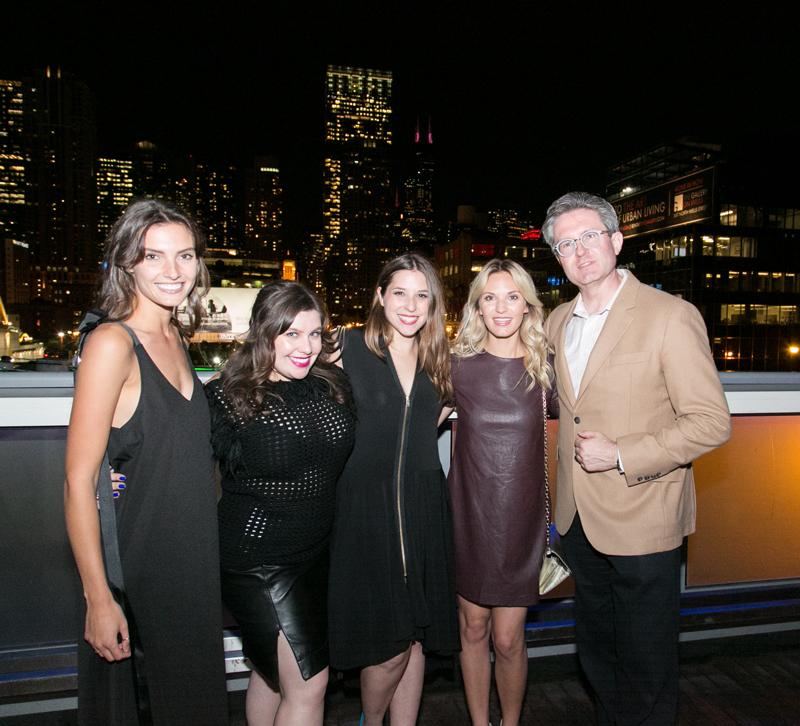At 9 a.m. on a Monday morning, two co-founders, a community manager and an intern gather around a wooden table at their Chicago office. Each one has a laptop sitting in front of them, but no one scrolls through Facebook. All eyes are on Millennial CEO and co-founder of Designer Share LLC, Sarah Perkins, who sits across from her co-founder, Generation X Chairman Bill Meyer. In 2015, the Millennial Generation eclipsed Generation X as the largest group in the American workforce. Chances are, you may have interviewed a few Millennials for a job at your company, and some may even be working in your firms and showrooms now. Like many generations before them, Millennials have been both vilified and misunderstood by those older. According to recent news reports, Millennials are responsible for killing the napkin and diamond industries. Last May, an Australian real estate mogul lamented to 60 Minutes that if Millennials would just quit spending their money on avocados, then they might all be homeowners by now — low-wage growth and college debt be damned.
Perkins experiences the generation gap every day. In her professional life, she works closely with Meyer, a lawyer who is currently earning his MBA at the University of Chicago. But she’s also a boss lady to her Millennial communications manager and an intern, and all the while, she too is trying to sell to other Millennials as well as Generation Z.
Working across generations
Perkins and Meyer formed Designer Share in 2015 and officially launched business operations in March 2017. Before becoming business partners, they were family friends. Meyer worked with Perkins’ father at a law firm.
Designer Share capitalizes on the sharing economy popular with Millennials and Generation Z. It allows women to rent out their designer clothing, handbags and shoes to other women on a weekly basis. Perkins conceived the idea while in college. As a member of a business fraternity, she attended a number of networking and formal events, all of which required nice clothes. But like many other college women, Perkins couldn’t justify spending a ton of money on new clothes for each event, but she didn’t want to wear the same outfits again and again.
Designer Share gives women the chance to wear designer clothes at a fraction of the cost, with most items renting at 10 percent of their retail value for the week. On the flip side, women can also become their own entrepreneurs, renting out clothes or bags they don’t wear often enough.
Meyer loved the concept, and he and Perkins began fundraising in 2016 after securing the LLC in 2015. Moving from personal friends to business partners felt fluid as they’d already developed a trusting relationship, and with their combined expertise — Meyer as a lawyer and Perkins as a journalism and communications fanatic as well as a prototype of their market — they felt confident in each other.
“Each of us brings a perspective that is unique that’s based upon our own backgrounds and experiences, “ Meyer explains, “and I think each of us brings to the table that benefit to the business.”
Perkins never doubted her partner’s capabilities, but she did worry he might doubt hers. She didn’t want to be seen as immature or incapable just because she was young, and though Meyer has heard all the favorite Millennials stereotypes, he wasn’t even slightly worried.
“If you’ve been in the workforce enough generations,” Meyer says, “you do see that nothing’s really new under the sun. History repeats itself and there are susceptibilities and immaturities that go with being in your teens or in your 20s, and there are maturities and experiences that go with being in the workforce longer. And there are also some people that you just can’t fix.”
Millennials working with Millennials
As a Millennial, Perkins has heard all of the stereotypes before: Millennials are lazy. They’re entitled. They’re obsessed with selfies. But in her experience working with Millennials as a boss and previously as a co-worker, the opposite appears to be true.
“I have so many friends who are such go-getters,” she says. “They’re amazing women and young men too, and they’re working constantly.”
Perkins herself can’t remember the last time she took a vacation, and her small team works just as hard. Everyone is expected to be in the office from 9 a.m. until 5 p.m., and there is some weekend work involved when the team needs to be at events around the city.
One thing that Perkins tries to prioritize is the mental health of her team. After long weekends with busy events, she isn’t opposed to letting an employee work from home so long as he or she has the materials necessary. She doesn’t feel the need to coddle, and thus far, no employees have taken advantage of her policy.
“If it’s constant, I start to worry,” she says. “It seems like you just don’t want to be here.”
As a boss and formerly as a coworker, Perkins knows that not every Millennial shares her and her team’s worth ethic. In her previous job, other Millennials liked to interrupt each other with gossip or funny internet videos, but even with coworkers, she set expectations.
“I was like, can’t we do this at lunch?” she says, “Can we do this when it’s kind of a set break?”
Rarely though, stereotypes come from fact, and if there’s one that’s true for Perkins, it’s avocados.
“We all love avocados,” she jokes.
Marketing Beyond Millennials
Perkins personally describes her generation as a “salesperson’s dream.” If the marketing and packaging looks great or speaks to her personally, then she’s interested.
“You put pretty packaging on anything, I eat it up,” she says. “I don’t care what it looks like once I actually use it. But I buy stuff all the time because someone else either told me or they just did such an amazing job with marketing.”

If guessing what Millennials want seems exhausting to Baby Boomers and Gen Xers, take heart: Millennials have their work cut out with Gen Z, those born starting in 1996. According to Millennial Marketing’s “Getting to Know Gen Z” report, Gen Zers care deeply about working for success and — having watched the Great Recession unfold — strive to be financially responsible. They’re also big believers in equality. When it comes to brands, 60 percent of Gen Zers (compared to 62 percent of Millennials) surveyed said they would support a brand that takes a stand on issues they believe in regarding human rights, race and sexual orientation.
They also seem to prefer online interactions most of all. On this Monday morning, Perkins recaps her scouting trip to the Loyola University Student Center where she gave a presentation to the Alpha Chi Omega sorority about Designer Share. She hoped for signups, but turnout was lower than expected and the girls didn’t want to take the time to sign up in person.
But as Meyer said, there’s almost nothing new under the sun today. After Perkins’ presentation, a number of girls went online, and some even signed up. They may not have responded in the moment, but they were listening. Much like Boomers and Gen Xers getting used to Millennial preferences, Perkins will need to get used to Gen Zer preferences.
One thing’s certain though: The digital revolution is here to stay. Be they Millennials or Gen Zers, the next wave of consumers will expect quality marketing and a strong digital presence. No matter what generation you belong to, there will always be a learning curve, and the businesses that thrive will be the ones who make the best effort to evolve.







